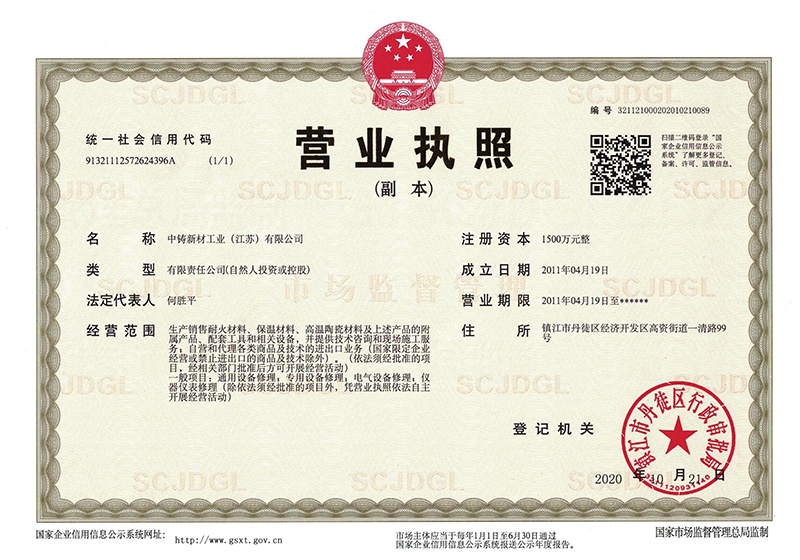News
SINO-FOUNDRY—professional refractory manufacturer
The Integral Role of Coil Grout in Enhancing the Structural Integrity of Copper Materials
2025-07-13
The Integral Role of Coil Grout in Enhancing the Structural Integrity of Copper Materials Table of Contents 1. Introduction to Coil Grout and Copper Structures 2. Importance of Coil Grout in Copper Metallurgy 3. Composition of Coil Grout and Its Properties 4. Applications of Coil Grout in Strengthening Copper Structures 5. Installation Techniques for Coil Grout 6. Benefits
The Integral Role of Coil Grout in Enhancing the Structural Integrity of Copper Materials
Table of Contents
- 1. Introduction to Coil Grout and Copper Structures
- 2. Importance of Coil Grout in Copper Metallurgy
- 3. Composition of Coil Grout and Its Properties
- 4. Applications of Coil Grout in Strengthening Copper Structures
- 5. Installation Techniques for Coil Grout
- 6. Benefits of Using Coil Grout in Copper Construction
- 7. Challenges and Considerations When Using Coil Grout
- 8. Future Trends in Coil Grout Technology
- 9. Frequently Asked Questions
- 10. Conclusion
1. Introduction to Coil Grout and Copper Structures
Coil grout has emerged as a vital component in the metallurgy industry, specifically within the realm of copper structures. As industries increasingly demand durable and resilient materials, the need for effective strengthening techniques becomes paramount. Coil grout, primarily composed of a blend of cement, sand, and additives, is engineered to enhance the mechanical properties and longevity of copper components.
The significance of coil grout extends beyond mere enhancement; it serves as a critical bonding agent that fortifies the structural integrity of copper. By providing a robust interface between copper elements, coil grout minimizes the risk of structural failures, thereby ensuring the longevity and safety of applications ranging from electrical wiring to plumbing systems.
2. Importance of Coil Grout in Copper Metallurgy
The metallurgy sector faces numerous challenges, including corrosion, fatigue, and mechanical wear. Copper, while renowned for its excellent conductivity and malleability, is not impervious to these issues. The use of coil grout presents several advantages that address these challenges effectively.
2.1 Enhancing Durability and Longevity
Coil grout significantly enhances the durability of copper structures. By filling voids and gaps, it creates a unified and solid mass that prevents the ingress of moisture and other corrosive agents, thus extending the lifespan of copper materials.
2.2 Improving Load Distribution
An evenly applied coil grout layer improves the load distribution across copper components, reducing stress concentrations that can lead to fatigue and failure. This is particularly important in applications where copper materials must withstand dynamic loads.
2.3 Mitigating Corrosion Risks
Through its chemical composition, coil grout can resist environmental factors that contribute to corrosion. This is especially crucial in industries where copper is exposed to harsh conditions, such as mining and energy production.
3. Composition of Coil Grout and Its Properties
Understanding the composition of coil grout is essential for its effective application. Typically, coil grout consists of the following components:
3.1 Cement
The primary binding agent in coil grout, cement provides essential strength and stability. High-quality cement formulations are essential for achieving optimal performance.
3.2 Fine Aggregates
Fine aggregates, such as sand, contribute to the density and workability of the grout, ensuring a smooth application. The choice of aggregate can influence the final properties of the grout.
3.3 Additives
Chemical additives are incorporated to enhance properties such as fluidity, setting time, and resistance to shrinkage. These additives allow for customization based on specific project requirements.
4. Applications of Coil Grout in Strengthening Copper Structures
Coil grout finds applications in various sectors where copper is utilized. Some notable applications include:
4.1 Electrical Systems
In electrical applications, coil grout is utilized to secure copper wiring and connections, preventing movement and ensuring consistent conductivity over time.
4.2 Plumbing and Piping
Coil grout plays a critical role in plumbing systems, particularly where copper pipes are subjected to thermal expansion and contraction. It provides a strong bond, reducing the risk of leaks and failures.
4.3 Construction and Infrastructure
In infrastructure projects, coil grout reinforces copper elements within structural frameworks, enhancing overall stability and safety in buildings, bridges, and tunnels.
5. Installation Techniques for Coil Grout
Proper installation techniques are crucial for maximizing the effectiveness of coil grout. Key steps include:
5.1 Surface Preparation
Surface preparation is essential for ensuring strong adhesion. This includes cleaning the copper surfaces to remove contaminants and roughening them to enhance mechanical bonding.
5.2 Mixing and Application
Following manufacturer guidelines, mix the coil grout to the desired consistency. Apply it evenly, ensuring adequate coverage of all surfaces that require reinforcement.
5.3 Curing
Allow adequate curing time as specified by the manufacturer. Curing is crucial for achieving maximum strength and durability of the grout.
6. Benefits of Using Coil Grout in Copper Construction
The decision to implement coil grout in copper construction offers numerous benefits:
6.1 Cost-Effectiveness
While the initial investment in coil grout may seem significant, the long-term savings associated with reduced maintenance and extended lifespan justify the expense.
6.2 Enhanced Safety
The use of coil grout significantly reduces the likelihood of structural failures, promoting safety in both residential and commercial applications.
6.3 Increased Performance
Coil grout optimizes the performance of copper structures, leading to improved energy efficiency and functionality in various applications.
7. Challenges and Considerations When Using Coil Grout
Despite its advantages, there are challenges associated with the use of coil grout:
7.1 Environmental Factors
Environmental conditions, such as temperature and humidity, can affect the curing process of coil grout. Proper planning and monitoring are essential.
7.2 Compatibility with Copper
Ensuring compatibility between coil grout and copper materials is critical to avoid adverse reactions that could compromise structural integrity.
8. Future Trends in Coil Grout Technology
As the metallurgy sector evolves, so does the technology surrounding coil grout. Future trends include:
8.1 Advanced Composite Materials
The development of advanced composite materials may lead to enhanced properties of coil grout, offering even greater strength and durability.
8.2 Sustainable Grouting Solutions
With a growing emphasis on sustainability, the industry is likely to see the emergence of eco-friendly coil grout formulations, minimizing environmental impact while maximizing performance.
9. Frequently Asked Questions
What is coil grout?
Coil grout is a specialized mixture of cement, aggregates, and additives used to strengthen and bond copper structures.
How does coil grout improve durability?
Coil grout fills voids and gaps, creating a solid bond that protects against corrosion and enhances load distribution.
Can coil grout be used in electrical applications?
Yes, coil grout is commonly used in electrical systems to secure copper wiring and connections, ensuring reliable conductivity.
What are the key installation steps for coil grout?
Key steps include surface preparation, mixing the grout according to specifications, applying evenly, and allowing adequate curing time.
What challenges should I consider when using coil grout?
Consider environmental factors, compatibility with copper, and proper installation techniques to maximize the benefits of coil grout.
10. Conclusion
Coil grout plays a crucial role in enhancing the structural integrity of copper materials across various applications. Its ability to improve durability, mitigate corrosion risks, and optimize load distribution makes it an indispensable component in the metallurgy industry. As we continue to innovate and develop more advanced solutions, the importance of coil grout will only grow, paving the way for safer and more resilient copper structures in the future. By understanding its composition, applications, and installation techniques, industry professionals can harness the full potential of coil grout, ensuring the longevity and performance of their copper materials.
Related News
2024-11-05
Zhongzhu New Materials Industry sincerely invites you to participate in the 24th International Forum and Exhibition on Recycled Metals.

WeChat public account

View mobile website
Address : No. 99, Yiqing Road, Gaozi Street, EconomicDevelopment Zone, Dantu District, Zhenjiang City
Fax : +86-511-85683066
E-mail : sales@sfr168.com
Website : https://www.sfr168.com
Copyright©2023 Sino-Foundry Refractory(Jiangsu) Co.,Ltd. Powered by:www.300.cn
Copyright©2023 Sino-Foundry Refractory(Jiangsu) Co.,Ltd.
IPV6 | SEO | Cloud Information



